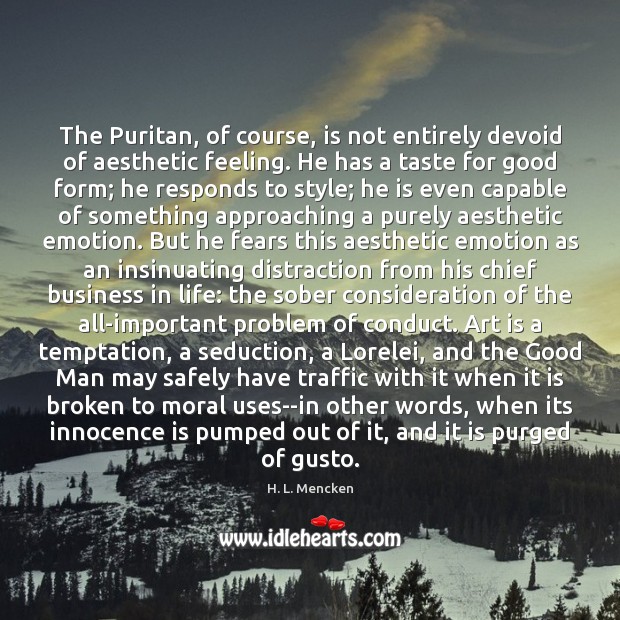The Puritan, of course, is not entirely devoid of aesthetic feeling. He has a taste for good form; he responds to style; he is even capable of something approaching a purely aesthetic emotion. But he fears this aesthetic emotion as an insinuating distraction from his chief business in life: the sober consideration of the all-important problem of conduct. Art is a temptation, a seduction, a Lorelei, and the Good Man may safely have traffic with it when it is broken to moral uses–in other words, when its innocence is pumped out of it, and it is purged of gusto.








